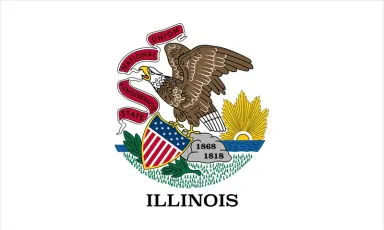Rhode Island Trucking Laws

Trucking is a significant industry in Rhode Island, with 3,990 locally owned trucking companies and 98.4% of manufactured materials transported by trucks. Accidents in Rhode Island have been a growing concern in recent years. According to the 2021 Federal Motor Carrier Safety Administration (FMCSA) Motor Carrier Management Information System data, 188 crashes involving large trucks and buses in Rhode Island resulted in 115 injuries and three fatalities.
These statistics highlight the harmful effects of truck accidents on people and their loved ones. Rhode Island trucking accident laws have been created to provide a means for victims to obtain financial compensation.
Rhode Island Commercial Driver’s License Requirements
To operate a commercial truck or bus in Rhode Island, one must obtain a Commercial Driver's License (CDL) from the state's Division of Motor Vehicles. This agency is responsible for issuing CDLs and ensuring that commercial drivers comply with both state and federal regulations.
Anyone who wants to obtain a CDL in Rhode Island must successfully complete both a written examination and a practical driving assessment. They also have to undergo a physical exam to ensure they meet the necessary requirements for commercial driving. To qualify, they must have a valid driver's license from Rhode Island and provide proof of residency.
Rhode Island CDL holders must also follow state and federal regulations related to commercial driving, including restrictions on hours of service, mandatory safety inspections, and weight and size restrictions for commercial vehicles.
By understanding and complying with the state’s CDL requirements and commercial driving laws, CDL holders can help ensure their own safety and the safety of other motorists on the road.
Rhode Island Trucking Size and Weight Regulations
Rhode Island has specific regulations on the size and weight of commercial vehicles, including trucks. The regulations are designed to promote safety on the state's roads and highways and to protect the state's infrastructure.
The maximum weight for a commercial vehicle is 80,000 pounds, which aligns with federal weight limits. The state also has specific axle weight limits designed to prevent damage to roads and bridges. For example, the maximum weight on a single axle is 20,000 pounds, while the maximum weight on a tandem axle is 34,000 pounds. Violators of the weight limits may be fined $215 for every 100 pounds they exceed the limit.
There are also specific length limits for commercial vehicles. The maximum length for a single vehicle is 45 feet, 53 feet for semi-trailers, and 82 feet for towaway trailer and transporter combinations. Excessive lengths may result in a fine of $200 per foot over the maximum length.
Additionally, the height and width of commercial vehicles are limited to a maximum height of 162 inches and a maximum width of 102 inches. Violations may result in a fine of $500 per inch over the maximum height and $100 per inch over the maximum width.
Rhode Island Oversize / Overweight Truck Regulations
Rhode Island requires a special permit for oversize or overweight loads on top of the size and weight regulations to promote road safety and help protect the state’s infrastructure.
The permits are issued case-by-case based on the specific weight and size of the vehicle and load. It may require the driver to follow a particular route to avoid roads or bridges that cannot support the weight of the vehicle.
These laws also help ensure that all CMVs operate within safe weight limits to reduce the risk of accidents and damage to roads and bridges.
Rhode Island Trucking Hours of Service Regulations
Rhode Island has established Trucking Hours of Service (HOS) regulations for commercial drivers operating within the state to prevent driver fatigue. The regulations are based on federal HOS guidelines established by the FMCSA.
To ensure safety, commercial drivers have guidelines for driving hours. Property-carrying vehicle drivers, for example, can only drive for 11 hours after 10 consecutive hours off duty. After 8 hours of driving, they must take a 30-minute break. Drivers cannot drive for more than 14 hours after starting their shift. Before starting a new driving shift, commercial drivers must take at least 10 consecutive hours off duty.
The regulations also mandate drivers to keep accurate records of their driving time and breaks through a logbook that includes the date, start and end times of each driving shift, and the total number of miles driven.
Violations of the HOS guidelines can lead to a $500 fine, license suspension, or disqualification from driving a commercial vehicle. The violations may also put drivers and other users at risk of accidents due to driver fatigue.
Rhode Island Trucking DUI Law
The Rhode Island Trucking DUI Law aims to address the issue of impaired driving among commercial truck drivers in Rhode Island. It seeks to promote public safety on the roads by ensuring that commercial truck drivers are not operating their vehicles while under the influence of drugs or alcohol.
The legal limit for blood alcohol concentration (BAC) for commercial truck drivers is 0.04%, half the legal limit for non-commercial drivers, 0.08%. The lower limit is set because commercial drivers operate large, heavy vehicles that can cause significant damage and injury if an accident occurs.
Any driver violating this law may face fines of up to $500 for the first offense and up to $5,000 for subsequent offenses. Other penalties include suspension of their commercial driver's license and even imprisonment for up to five years for multiple offenses. Additionally, the driver's employer may also face penalties for allowing an impaired driver to operate their vehicle.
By imposing strict penalties, the state is taking a proactive approach to preventing impaired driving and protecting the lives of its citizens. If you are a commercial truck driver involved in a truck accident caused by drunk driving, it is essential to seek legal advice from an experienced attorney.
Rhode Island Trucking Speeding Law
The Rhode Island Trucking Speeding Law is a regulation designed to address the issue of speeding among commercial truck drivers and is aimed at promoting public safety on the roads by ensuring that commercial truck drivers are not driving at excessive speeds, which can increase the risk of accidents.
The law states that it is unlawful for any person who operates a commercial motor vehicle to exceed the posted speed limits. Rural interstates and divided highways have a speed limit of 65 mph. Divided arterials and expressways have a speed limit of 50 mph, both during the day and at night, outside business and residential districts. However, outside these areas at night, the speed limit is reduced to 45 mph. The maximum speed limit is 25 mph in commercial and residential districts. Finally, within 300 feet of and through school zones, the speed limit is set at 20 mph to ensure the safety of children getting on and off school buses.
It also sets specific speed limits for commercial trucks on certain roads and highways. For example, on interstate highways, the maximum speed limit for commercial trucks with a gross weight of over 26,000 pounds is 65 miles per hour. On other highways and roads, the maximum speed limit for commercial trucks may be lower than the posted limit for non-commercial vehicles.
Drivers who violate this law may face a license suspension of up to one year and fines between $85 and $195, with an additional $10 for each mile above the first 10 mph over the limit.
Rhode Island Trucking Distracted Driving Law
The Rhode Island Trucking Distracted Driving Law recognizes the dangers posed by distracted driving to commercial drivers, such as texting, eating, drinking, grooming, and using electronic devices while driving. It intends to penalize truck drivers who engage in these activities while on the road.
It is against the law for a commercial truck driver to use a hand-held mobile telephone or any electronic device while driving, and texting while driving, including reading, composing, or sending text messages, emails, or other electronic communications, is also prohibited.
The law defines a CMV as any vehicle used for commercial purposes, including but not limited to delivery trucks, semi-trucks, and tractor-trailers. Violations of this regulation can result in fines of up to $100 as well as other punishments, such as suspension.
Rhode Island Commercial Trucking Insurance Requirements
Rhode Island Commercial Trucking Insurance Requirements are regulations that mandate certain types and levels of insurance coverage for commercial trucks operating within the state.
All commercial trucks operating in the state are required to carry liability insurance coverage. The minimum coverage amounts required are a minimum of $25,000 bodily injury liability per person, $50,000 bodily injury liability per accident, and $25,000 property damage liability per accident. Additionally, commercial trucking companies must carry liability insurance based on the type of cargo transported, which is as follows: $300,000 for household goods, $750,000 for general freight, $1,000,000 for oil transport, and $5,000,000 for hazardous materials.
All carriers must also have cargo insurance of $25,000 per vehicle and $25,000 per catastrophe.
How Much Can Someone Sue for a Truck Accident in Rhode Island?
Rhode Island has no cap on economic and non-economic damages for personal injury or wrongful death claims arising from a truck accident. This means that if you suffer serious injuries or a loved one is killed in a truck accident due to the negligence of the truck driver or another party, you can potentially recover significant compensation for medical expenses, lost wages, emotional distress, and pain and suffering.
If you are involved in a truck accident in Rhode Island and suffer injuries or property damage, the damages you can seek in a truck accident case will depend on the severity of your injuries, the extent of your property damage, and the level of negligence or fault on the part of the truck driver. We highly recommend seeking an experienced truck accident attorney to help with your case.
Rhode Island Statute of Limitations for Truck Accidents
Rhode Island imposes a three-year statute of limitations for truck accident lawsuits. This means that injured victims in a truck accident have three years from the date of the accident to file a lawsuit seeking compensation for their injuries and other losses.
Additionally, there is a statute of limitations of ten years for damage to property. It's important to note that the statute of limitations is a strict deadline, and missing it may prevent individuals and families from filing a lawsuit and recovering compensation. That's why it's important to speak with an experienced personal injury attorney as soon as possible after a truck accident, so you can begin the legal process and ensure that your rights are protected.
Rhode Island Is an At-Fault State for Insurance Claims
Rhode Island is a fault state for insurance claims, which means that in the event of a truck accident, the at-fault driver and their insurance company are responsible for paying damages to the injured party.
Under Rhode Island's fault-based insurance system, injured parties can file a claim with the at-fault driver's insurance company to seek compensation for their injuries and other losses, such as property damage and lost wages. If the insurance company disputes the claim or offers a settlement amount that is insufficient to cover the full extent of the injured party's damages, the injured party can file a lawsuit seeking additional compensation.
Rhode Island Is a Pure Comparative Fault State for Trucking Accident Lawsuits
Rhode Island is a pure comparative fault state when it comes to trucking accident lawsuits. This means that in a lawsuit seeking damages for injuries sustained in a trucking accident, the court will assign a percentage of fault to each party involved in the accident, including the injured party. If the injured party is found to be partially at fault for the accident, their damages award will be reduced by the percentage of fault assigned to them.
Under this law, there is no minimum threshold for the injured party's percentage of fault in order to recover damages. This means that even if the injured party is found to be 99% at fault for the accident, they can still recover 1% of the damages awarded.
It's important to note that Rhode Island's pure comparative fault system can make it more challenging to recover full compensation for injuries sustained in a trucking accident. That's why working with an experienced personal injury attorney who can help you build a strong case and fight for your right to fair compensation is important.
Average Settlement for Rhode Island Trucking Accident Lawsuits
Providing the average amount of settlement for trucking accident lawsuits in Rhode Island is difficult because the amount of compensation awarded can vary depending on the case's specific circumstances.
Since Rhode Island follows a comparative negligence rule, if an injured victim is found to be partially at fault for the accident, their damages award will be reduced by the percentage of fault assigned to them. For example, if they are found to be 25% at fault for the accident, and the damages award is $100,000, their award would be reduced to $75,000.
Legal Resources for Rhode Island Trucking Accident Victims
Rhode Island Bar Association Online Lawyer Referral Service
The Rhode Island Bar Association Online Lawyer Referral Service provides legal representation solutions to clients who have been injured in accidents. It handles a variety of personal injury cases, including those involving truck accidents. Its referral program helps connect injured individuals with the legal assistance they need. They can be reached by telephone at (401) 421-7799.
Rhode Island Bar Association Volunteer Lawyer Program
The Rhode Island Bar Association Volunteer Lawyer Program is a vital initiative that provides pro bono legal services to low-income truck accident victims who are in need of legal assistance. Participating attorneys offer their legal services free of charge to clients who meet the income guidelines set forth by the federal government and whose cases fall under one of the areas of law handled by the VLP. More information about the program can be obtained by calling (401) 421-7758, 1-800-339-7758, or sending an email to jellis@ribar.com.
Help RI Law: Rhode Island Legal Services
HelpRI is a program by the nonprofit organization Rhode Island Legal Services that delivers free legal assistance to low-income Rhode Islanders in need. It offers representation in court, advice and counsel, and legal education. The website also has a comprehensive resource center that provides information on a wide range of legal topics, including trucking accidents.
Rhode Island Commercial Driver License Manual
The Rhode Island Driver's Manual is an essential guide that covers a wide range of topics related to driving CMVs, including traffic laws and regulations, safe driving practices, and road rules. It includes important information on how to safely operate large vehicles, which can be particularly dangerous due to their size and weight. Truck drivers must understand how to navigate the roads safely and avoid potential hazards.
Rhode Island Travel Advisories
The RIDOT offers real-time traffic updates, construction alerts, and maps of the state's highways and byways. It also provides information on rest areas and service plazas along the state's major highways where truck drivers can stop to take a break, use restroom facilities, or get something to eat. For truck drivers, it includes truck parking locations and other resources that can help them safely navigate the state's roads.
Rhode Island Crash Reports
The Rhode Island State Police Crash Report website provides guidance on obtaining accident reports from the Rhode Island DMV or the police department that responded to the accident. Additionally, the website explains the steps that truck drivers should take immediately after an accident, including calling 911 if there are any injuries or significant property damage, moving vehicles out of the roadway if possible, and exchanging information with the other drivers involved.
Expertise.com StaffAuthor
Step into the world of Expertise.com, your go-to hub for credible insights. We don't take accuracy lightly around here. Our squad of expert reviewers, each a maestro in their field, has given the green light to every single article you'll find. From rigorous fact-checking to meticulous evaluations of service providers, we've got it all covered. So feel free to dive in and explore. The information you'll uncover has been stamped with the seal of approval by our top-notch experts.

Louis W. GrandeReviewer
Louis W. Grande aims to provide exceptional legal representation to clients based on the firm’s core values of Experience, Integrity, and Diligence. Since founding his firm in 1990, he has built a thriving practice that focuses on building strong relationships with clients and providing them with the added value they expect and deserve. He has recovered millions of dollars on behalf of injury victims. Visit: https://louisgrande.com/




